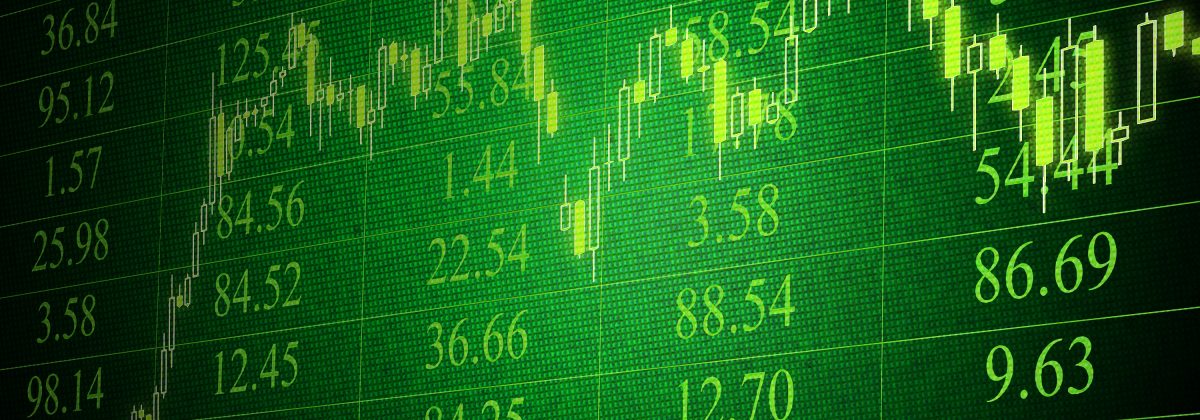The financial markets are flooded with a variety of trading instruments, of which CFDs are a popular leveraged derivative product. They offer a safer way than most other types of trading to gain exposure to the markets with low initial investments. The best part is that they allow you to trade both rising and falling markets because you are speculating on the direction of movement.
However, the unfortunate reality is that the financial markets are also known for scams and fake news intended to destabilise prices. ‘Pump and Dump’ is a strategy where bogus statements and predictions are made about a specific asset, with the sole aim of forcing fluctuations in prices. Those who practice this strategy use all kinds of trickery and deceptive methods to attract investment in the asset they want to cash in. CFDs also suffer from pump and dump scams.
Here’s a look at what ‘CFDs’ means and how pump and dump works in CFDs.
What are CFDs?
Contracts for Difference otherwise known as CFDs are essentially a contract between a buyer and a seller for a particular asset, where one party agrees to pay the other the difference between the opening and the closing price of the contract. To take a position, you usually need to just pay a margin value, which typically is 5%-10% of the actual price of the underlying asset. While using leverage does increase the potential to make higher gains, it also means that losses will be multiplied. Therefore, just like any other type of trading, making an informed decision with the right risk management strategies in place is the key to succeeding with CFDs.
CFDs are available with both instant and market execution. Your orders are executed instantaneously, leading to fast and efficient trading. CFDs are available for almost every asset class in the financial markets, from stocks and indices to forex and cryptocurrencies. This is an effective way to participate in the world markets.
Index CFDs are also an option for trading and entail a collection of the biggest stocks registered on a specific stock exchange. The value of an index cannot become zero, since all of the stocks registered on the index need to go down to zero for this, which is next to impossible.
The key benefits of trading CFDs include higher leverage, global market access from a single platform, ability to take both short and long positions, 24×7 trading and low transaction fees.
Pump and Dump in CFDs
Pump and dump is a strategy for market manipulation, where bogus statements and news are spread about an asset, with the aim to increase its price. The main purpose of this is to create artificial demand, which the scamster will then benefit from by selling the asset when the price rises.
There are two parts to this strategy:
- The prices are boosted by beneficiaries by spreading fake news about the underlying assets or the company whose stock they want to manipulate.
- As the news spreads, people start investing in the overhyped asset, leading to raised demand. This drives the price of the asset up. Once this occurs, the scammers become active and start selling their holdings at the inflated price.
Social media and other internet-based avenues offer platforms to pump up the asset or stock of a particular firm and influence people to invest.
How Pump and Dump Works
The promoters or organisation insiders start the scam by advancing a specific stock as the next big thing. They can do so through news releases, intended to support the share price. What you have to know is that points of interest for each trick are normally unique. Despite this, the guidelines are the same – exploiting the free demand and supply forces.
Financial experts state that such scams are targeted at small scale stocks, since they have low market capitalisation. These are typically traded over the counter. Such small cap companies are usually fairly illiquid, which leads to sharp price rises when trading volumes increase. This strategy has now reached the cryptocurrency market, where the scammer chooses a crypto with low liquidity but stable, albeit low, value. They then artificially inflate the price and take profits from the price rise.
Due to technological advancement, pump and dump schemes can be controlled by anybody with access to the internet and an online trading account. Apart from this, scammers have to convince other investors to put their money into a specific, overhyped asset.
The scammers can persuade others by buying more units of the asset themselves, consequently boosting the price. These activities will persuade others to purchase the asset too. At the point when the scammers feel the buying pressure is nearing a decline, they will sell their holdings and reap profits.
Features of a Pump and Dump Strategy
- Steep increase in price and multiple ask orders, without any significant fundamental reason supporting the demand.
- The price rise and surge in demand occurs on a single platform, without any effect on the prices on other exchanges.
- The asset becomes a hot topic on the internet, with ads and tips to buy it popping up on social media channels, forums and such like.
- Sudden increase in volume after being inactive for a period of time is a sure sign of a pump and dump scheme.
- Absurd guarantees surface, such as promises of higher returns with minimal or no risk involved.
Conclusion
Pump and Dump has been present in penny stock CFDs for a long time now. However, now we are witnessing organised pump and dump schemes even in the crypto world. Pump and dump plans are illicit and punishable by law. The best course of action is to know how to spot such schemes and make trading decision based on robust technical and fundamental analysis, rather than market hype. So, prior to investing, do your own thorough research and analysis about the underlying assets. This will reduce the risk of falling prey to such scams.
Disclaimer
Trading leveraged products involves a high level of risk. 71% of retail investor accounts lose money when trading CFDs with this provider. You should consider whether you understand how CFDs work and whether you can afford to take the high risk of losing your money.





